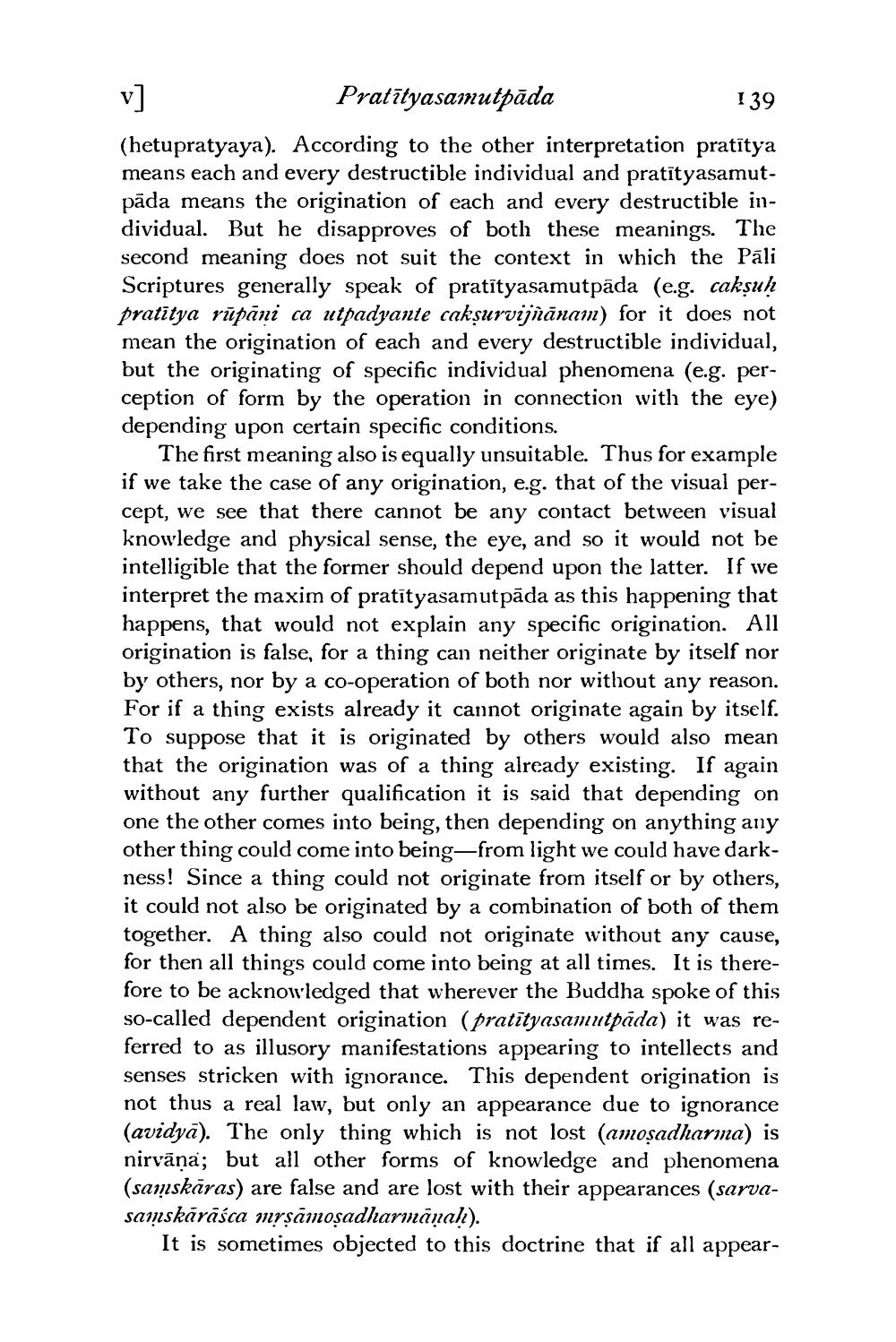________________
Pratītyasamutpāda
139
(hetupratyaya). According to the other interpretation pratītya means each and every destructible individual and pratītyasamutpāda means the origination of each and every destructible individual. But he disapproves of both these meanings. The second meaning does not suit the context in which the Pāli Scriptures generally speak of pratītyasamutpāda (e.g. cakṣuḥ pratītya rūpāni ca utpadyante caksurvijñānam) for it does not mean the origination of each and every destructible individual, but the originating of specific individual phenomena (e.g. perception of form by the operation in connection with the eye) depending upon certain specific conditions.
The first meaning also is equally unsuitable. Thus for example if we take the case of any origination, e.g. that of the visual percept, we see that there cannot be any contact between visual knowledge and physical sense, the eye, and so it would not be intelligible that the former should depend upon the latter. If we interpret the maxim of pratītyasamutpāda as this happening that happens, that would not explain any specific origination. All origination is false, for a thing can neither originate by itself nor by others, nor by a co-operation of both nor without any reason. For if a thing exists already it cannot originate again by itself. To suppose that it is originated by others would also mean that the origination was of a thing already existing. If again without any further qualification it is said that depending on one the other comes into being, then depending on anything any other thing could come into being—from light we could have darkness! Since a thing could not originate from itself or by others, it could not also be originated by a combination of both of them together. A thing also could not originate without any cause, for then all things could come into being at all times. It is therefore to be acknowledged that wherever the Buddha spoke of this so-called dependent origination (pratītyasamutpāda) it was referred to as illusory manifestations appearing to intellects and senses stricken with ignorance. This dependent origination is not thus a real law, but only an appearance due to ignorance (avidyā). The only thing which is not lost (amoșadharma) is nirvāņa; but all other forms of knowledge and phenomena (saīskāras) are false and are lost with their appearances (sarvasamskārāśca mrşāmosadharmanah).
It is sometimes objected to this doctrine that if all appear




